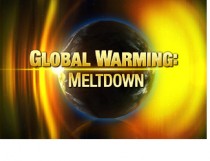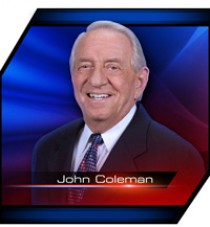Patrick J. Michaels, George Mason University
Michael Mann’s Dec. 31 Letter to the Editor, “Science Journals Must be Unpolluted by Politics,” states that I falsely claimed that work by me and “other fossil-fuel-funded climate change contrarians” has been “unfairly blocked . . . from appearing in mainstream science journals.”
In fact, this started nearly 20 years ago, when Stephen Schneider, the editor of Climatic Change, rejected a manuscript of mine reconstructing upper-air data, saying that its “counter-paradigm” nature required that it be subject to more vigorous peer review than other submissions.
Prof. Mann claims that other “skeptics” (whatever that means), such as University of Alabama’s John Christy, have “no problem” with the mainstream journals. Prof. Christy recently documented a remarkable series of publication irregularities directed against him and other scientists, revealed in the climategate emails.
Recently, Roger Pielke Jr., director of the University of Colorado’s Center for Science and Technology Policy Research, noted a series of “effort[s] by activist climate scientists to stage-manage the peer review process much like how one might manage a partisan blog for public consumption.” One of his sources is again climategate, which is rife with threats to boycott a journal that dared to publish papers that Prof. Mann and his friends disagreed with.
In passing, I would note that the University of Virginia, where I worked for nearly 30 years, has rather rigorous standards for promoting scientists like myself through the academic ranks. Instead, Prof. Mann cites President Barack Obama’s science adviser John Holdren as an authority on my work, all the while arguing for keeping science “unpolluted by politics”!
Read more here.
---------------------------
Global Warming Meltdown
By KUSI’s John Coleman
Global Warming: Meltdown digs deeply into the strong differences of positions about global warming; It answers the negative responses by several key institutions to our first global warming telecast in January. See the special in 9 parts here.

The “Climategate” revelations that began in mid December have crescendoed into a series of almost daily embarrassments for the UN IPCC. This telecast covers as many of them as we can cram into an hour. The program can be viewed in segments. With the intro to each segment you will find links you may use to find more information on the topics covered. If this is the first time you are hearing about my efforts to debunk the bad science behind the global warming frenzy, you will find a wealth of information, videos and links to sites on the colemanscorner page here.

*The first program “Global Warming: The Other Side” can be viewed here. See the SPPI paper featured in it here.
--------------------------
The sound of alarm
By Dr. Richard Lindzen, MIT letter to Boston Globe
February 19, 2010
Kerry Emanuel’s February 15 Boston Globe op-ed ”Climate changes are proven fact” is more advocacy than assessment. Vague terms such as “consistent with,” “probably,” and “potentially” hardly change this. Certainly climate change is real; it occurs all the time. To claim that the little we’ve seen is larger than any change we “have been able to discern” for a thousand years is disingenuous. Panels of the National Academy of Sciences and Congress have concluded that the methods used to claim this cannot be used for more than 400 years, if at all. Even the head of the deservedly maligned Climatic Research Unit acknowledges that the medieval period may well have been warmer than the present.
The claim that everything other than models represents “mere opinion and speculation” is also peculiar. Despite their faults, models show that projections of significant warming depend critically on clouds and water vapor, and the physics of these processes can be observationally tested (the normal scientific approach); at this point, the models seem to be failing.
Finally, given a generation of environmental propaganda, a presidential science adviser (John Holdren) who has promoted alarm since the 1970s, and a government that proposes funding levels for climate research about 20 times the levels in 1991, courage seems hardly the appropriate description - at least for scientists supporting such alarm. See letter here.

Richard S. Lindzen
Cambridge
The writer is Alfred P. Sloan professor of atmospheric sciences at the Massachusetts Institute of Technology.
See his video interview for Copenhagen and John Coleman here.




